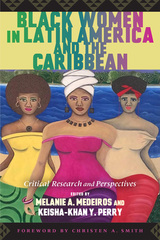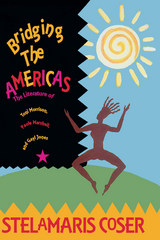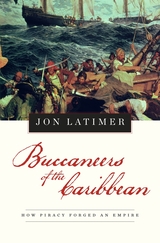9 start with B start with B

Bringing together the work of anthropologists, sociologists, economists, historians, and geographers, this collection reveals how the banana industry marshaled workers of differing nationalities, ethnicities, and languages and, in so doing, created unprecedented potential for conflict throughout Latin American and the Caribbean. The frequently abusive conditions that banana workers experienced, the contributors point out, gave rise to one of Latin America’s earliest and most militant labor movements. Responding to both the demands of workers’ organizations and the power of U.S. capital, Latin American governments were inevitably affected by banana production. Banana Wars explores how these governments sometimes asserted their sovereignty over foreign fruit companies, but more often became their willing accomplices. With several essays focusing on the operations of the extraordinarily powerful United Fruit Company, the collection also examines the strategies and reactions of the American and European corporations seeking to profit from the sale of bananas grown by people of different cultures working in varied agricultural and economic environments.
Contributors
Philippe Bourgois
Marcelo Bucheli
Dario Euraque
Cindy Forster
Lawrence Grossman
Mark Moberg
Laura T. Raynolds
Karla Slocum
John Soluri
Steve Striffler
Allen Wells



In both versions, the image of the exotic landscape overshadows the rich island cultures that are both linguistically and politically diverse, but trapped in a global economy that offers few options for development. Popular depictions also overlook the reality that the region is fraught with environmental problems, including water and air pollution, solid waste mismanagement, destruction of ecosystems, deforestation, and the transition from agriculture to ranching.
Bringing together ten essays by social scientists and activists, Beyond Sun and Sand provides the most comprehensive exploration to date of the range of environmental issues facing the region and the social movements that have developed to deal with them. The authors consider the role that global and regional political economies play in this process and provide valuable insight into Caribbean environmentalism. Many of the essays by prominent Caribbean analysts are made available for the first time in English.



A literary study of three important black women writers, this book examines the "inter-American" characteristics in the work of Marshall, Morrison, and Jones, including detailed discussions of Morrison's Song of Solomon and Tar Baby, Jones's Corregidora and Song of Anninho, and Marshall's The Chose Place, The Timeless People.
Coser defines the inter-American characteristics in these authors' novels as a connection based on a common African heritage and a shared legacy of colonialism and racism. These three authors redefine the boundaries between the Americas, bridging the "extended Caribbean" that stretches from the U.S. Atlantic coast to Brazil. Their work reinterprets ethnic and sexual identity. Issues of race, class, and nationality overlap. History and identity are reinvented.
To explore the collective forms of resistance and cultural processes in Brazil, the Caribbean, and the United States, Coser also makes provocative connections between the visibility of black women writers and the popularity of male Latin American novelists like Carlos Fuentes and Gabriel Garcia Marquéz.

During the seventeenth century, sea raiders known as buccaneers controlled the Caribbean. Buccaneers were not pirates but privateers, licensed to attack the Spanish by the governments of England, France, and Holland. Jon Latimer charts the exploits of these men who followed few rules as they forged new empires.
Lacking effective naval power, the English, French, and Dutch developed privateering as the means of protecting their young New World colonies. They developed a form of semi-legal private warfare, often carried out regardless of political developments on the other side of the Atlantic, but usually with tacit approval from London, Paris, and Amsterdam. Drawing on letters, diaries, and memoirs of such figures as William Dampier, Sieur Raveneau de Lussan, Alexander Oliver Exquemelin, and Basil Ringrose, Jon Latimer portrays a world of madcap adventurers, daredevil seafarers, and dangerous rogues.
Piet Hein of the Dutch West India Company captured, off the coast of Cuba, the Spanish treasure fleet, laden with American silver, and funded the Dutch for eight months in their fight against Spain. The switch from tobacco to sugar transformed the Caribbean, and everyone scrambled for a quick profit in the slave trade. Oliver Cromwell’s ludicrous Western Design—a grand scheme to conquer Central America—fizzled spectacularly, while the surprising prosperity of Jamaica set England solidly on the road to empire. The infamous Henry Morgan conducted a dramatic raid through the tropical jungle of Panama that ended in the burning of Panama City.
From the crash of gunfire to the billowing sail on the horizon, Latimer brilliantly evokes the dramatic age of the buccaneers.

READERS
Browse our collection.
PUBLISHERS
See BiblioVault's publisher services.
STUDENT SERVICES
Files for college accessibility offices.
UChicago Accessibility Resources
home | accessibility | search | about | contact us
BiblioVault ® 2001 - 2024
The University of Chicago Press









